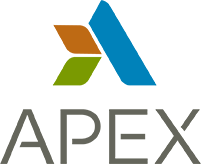Phase II Environmental Site Assessments
Oregon Department of Environmental Quality (DEQ) • Multiple Sites, Oregon
Solution Overview

Client:
Oregon DEQ
Business Challenge:
- Remediation of chlorinated solvents in multiple media across numerous sites
- Access challenges due to typical multi-tenant site disposition
Solution:
- Investigation and remediation with customized, innovative solutions for each site including Interim Remedial Measure (IRM) injection program
- Coordination with DEQ and tenants to accelerate remediation and minimize disruption
Results:
- Cost savings while maintaining tight budget controls
- Projects consistently completed at or below the final task budget
Challenge
Apex has completed numerous site investigations for the Oregon DEQ at dry cleaner sites across the Portland Metro area and across the State (funded by the State’s Dry Cleaner Fund). Recent projects have included Tigard Cleaners (Tigard), Springdale Cleaners (Portland/Hillsdale), Ellis Dry Cleaners (Portland/Boise), Five Star Cleaners (Portland/PSU), Sunshine Cleaners (Newberg), Rosewood Cleaners (Lake Oswego), Alpine Cleaners (Gresham), Sparkle Cleaners (Salem), and others.
Our services included Phase II environmental site assessments (ESAs) involving investigations of soil, groundwater, soil vapor, and ambient air; work plan development; interim remedial action measures (including in-situ bioremediation, in‑situ chemical oxidation, and sub-slab vapor recovery); long-term media monitoring programs for groundwater and vapors; vapor recovery system design, operation, and maintenance; risk assessment; and risk-based closure.
Most of the project sites were operating businesses, requiring careful coordination with operators and design and implementation of work tasks to minimize disruptions.
Solution
Our staff’s cooperative development of the work scopes with the DEQ allowed for the use of innovative solutions to address issues at each site. These included an IRM injection program involving the targeted use of a zero‑valent iron product in high‑concentration source areas, and a broader injection of an emulsified vegetable oil substrate augmented with a bioaugmentation microbial culture.
Results
With two of the dry cleaner sites (Tigard and Springdale), Apex promoted and implemented sharing of resources which resulted in cost savings to DEQ by reducing the effort on subcontractor procurement, coordinating shared resources for design and field tasks, and increasing the efficiency of material purchases and shipping. Apex accomplished all of this while maintaining tight budget controls (each project has consistently been completed at or below the final task budget, with amendments only as needed when the scope of work is revised or site conditions change).
